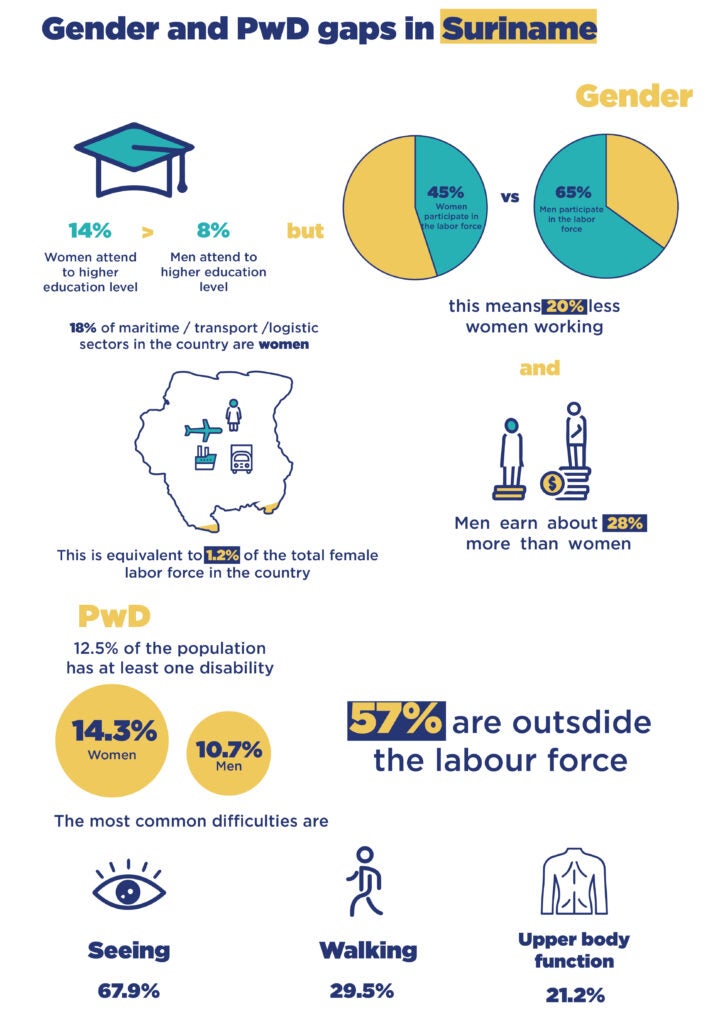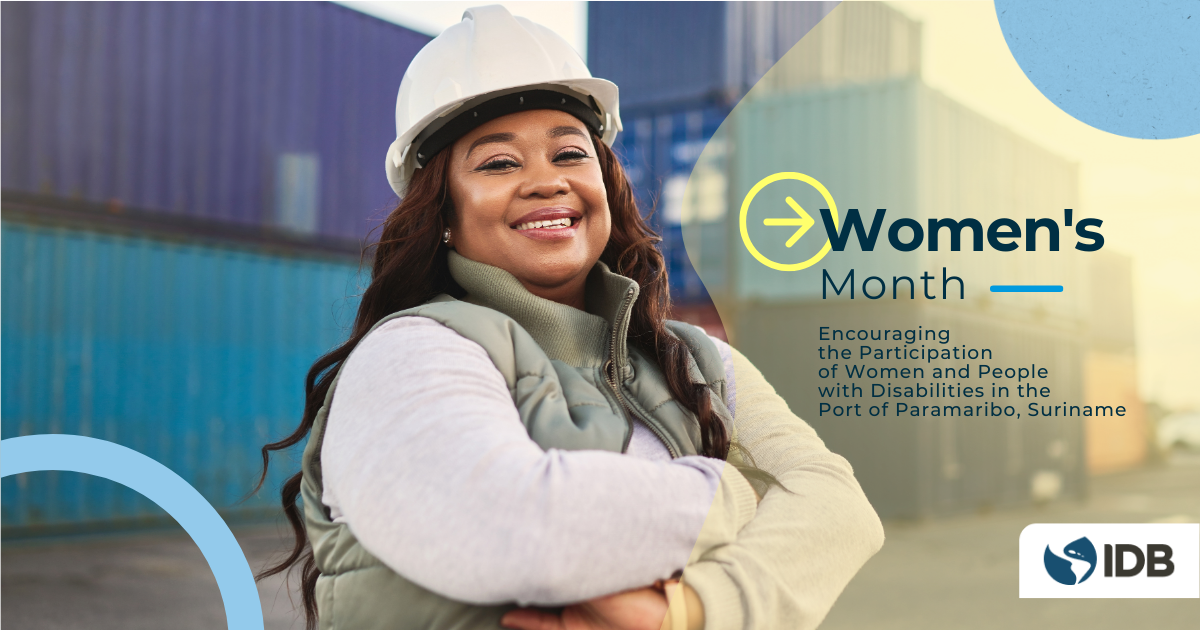The Inter-American Development Bank is embarking on a path to making Suriname’s primary cargo port a more inclusive workplace for women and people with disabilities.

Long-term gender and diversity transformation require more than sensible actions. It is not enough to implement awareness campaigns on Memorial Day. Changing unequal structures requires full commitment and the willingness to conduct in-depth and step-by-step actions.
This is the case of the Gender and People with Disabilities Inclusion Strategy and Action Plan designed for the Port of Paramaribo in Suriname. The plan was built based on a diagnosis that identified the challenges women and people with disabilities face in their day-to-day working environment and the actions to deal with it.
In this context, the Jules Sedney Terminal, the main seaport for cargo ships located in Paramaribo, has worked with the support of the loan SU-L1057 from the IDB to build a Gender and People with Disabilities Inclusion Strategy and Action Plan, aiming to increase the representation of women and people with disabilities in the workforce.
To build the action plan, a participatory process was implemented, both for the assessment of gaps and for jointly formulating the plan. Three levels were evaluated: the enabling environment (context), the organization, and the individual.
The results showed that all core capacities were not fully developed due to the issues evidenced:

The port’s diagnosis revealed its strengths and areas for improvement in the construction of the plan. Its goal is to ensure that by the end of 2025, at least 30% of the personnel are women, with a minimum of 35 women hired for positions previously held by men.
To reach this goal, the Gender and Inclusion Strategy and Action Plan establishes the next guidelines:
- Employability and recruitment (equal recruitment of personnel and division of labor and equal wage): the port will develop clear recruitment policies to increase the participation of women in technical jobs and leadership positions, plus promote equal treatment. Recruitment processes will be reviewed to stimulate women and People with disabilities to apply and to guarantee equity and the prevention of sexual harassment and biases when hiring. Empowerment workshops will also be implemented to promote employment abilities and the participation of women in technical positions in the port. Job opportunities will also be spread to reach target groups. In addition, there will be management training for women and a mentoring process. The plan includes permanent awareness campaigns with managers and personnel to prevent discrimination and sexual harassment. Also, infomercials will be developed to raise awareness of the role of women and people with disabilities in technical jobs and show positive role models.
- Equal professional development and partnerships for equality: the organization will prepare more women and people with disabilities in technical vocational training for working at the port and raise awareness on gender and diversity at primary schools and selected ministries. To achieve this goal, scholarships will be offered to women who want to pursue a training process on port labor. While for people with disabilities, access to technical schools will be granted through accessible transport, equipment, and scholarships. In addition, gender and diversity will be included in the curriculum of primary schools. These actions require stakeholders to work together, and close coordination with other public institutions.
- Work-life balance and social responsibility: The port will balance productive and reproductive tasks in families. Work-life balance will be facilitated by improving infrastructure for women (sanitation, breastfeeding/milk pump spaces, separate changing rooms), offering financial support with childcare, and developing discussion in the media and on family days about diversity and gender equality.
- Gender and diversity in the workplace: the port will create an organizational culture in which sexual harassment is not tolerated and clear regulations about sexual and labor abuse in the workplace. This implies the creation of policy regulations about how to deal with sexual harassment, including codes of conduct, sanctions, protocols for denounces (and confidential counseling), and the following up of the cases. These actions, plus awareness campaigns, aimed to prevent and let victims know where they can anonymously denounce and receive adequate support. The plan also includes implementing affordable and adequate transportation, getting adequate equipment, software, and tools for people with disabilities, and improving universal access to buildings and other infrastructure. By implementing these recommendations, future internships for people with disabilities can be even more successful in promoting inclusion and diversity in the logistics and transportation sectors in Suriname.
The Gender and People with Disabilities Inclusion Strategy and Action Plan of the Jules Sidney Terminal / Port of Paramaribo shows how institutional commitment can translate into long-term changes for equity. These actions have a clear goal to be reached in 2025, for which the port has committed to allocate financial and human resources to support the plan. Improving gender and people with disabilities participation in the workplace is paramount for establishing an inclusive and productive society.
At the IDB, we are honored to support the Port of Paramaribo’s implementation of the plan, as they are setting the path to improving workplace conditions for all employees.


Leave a Reply